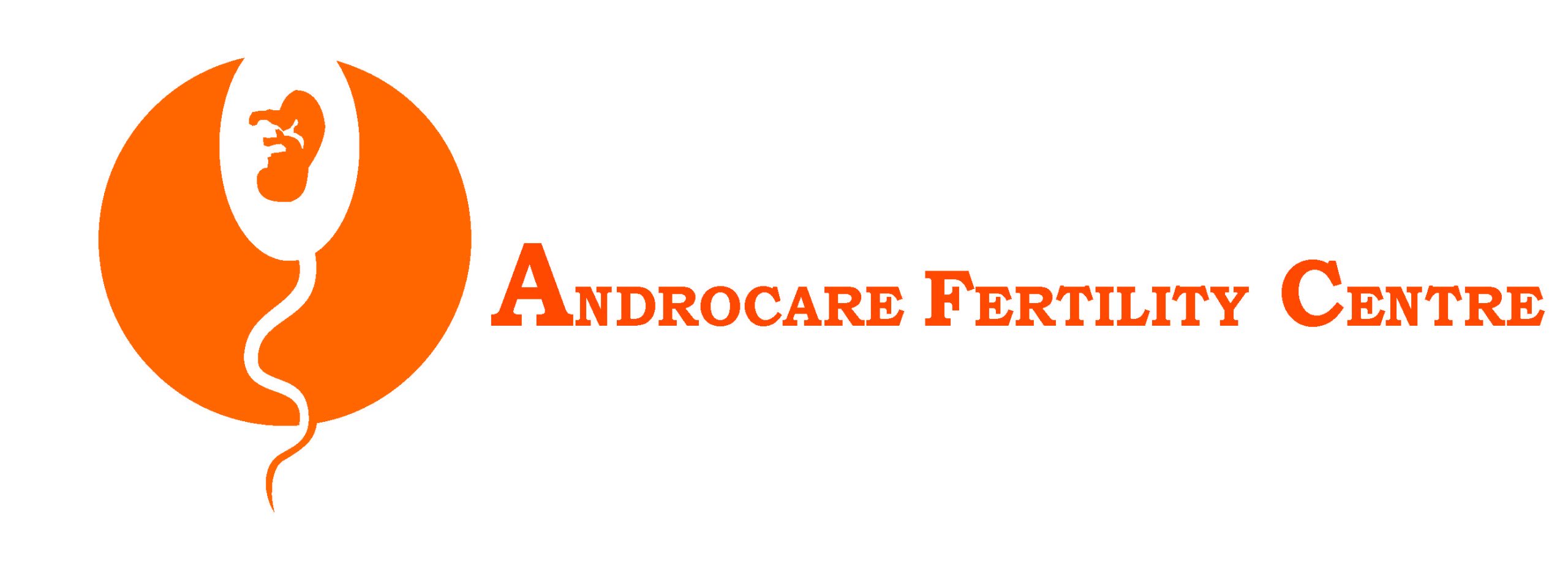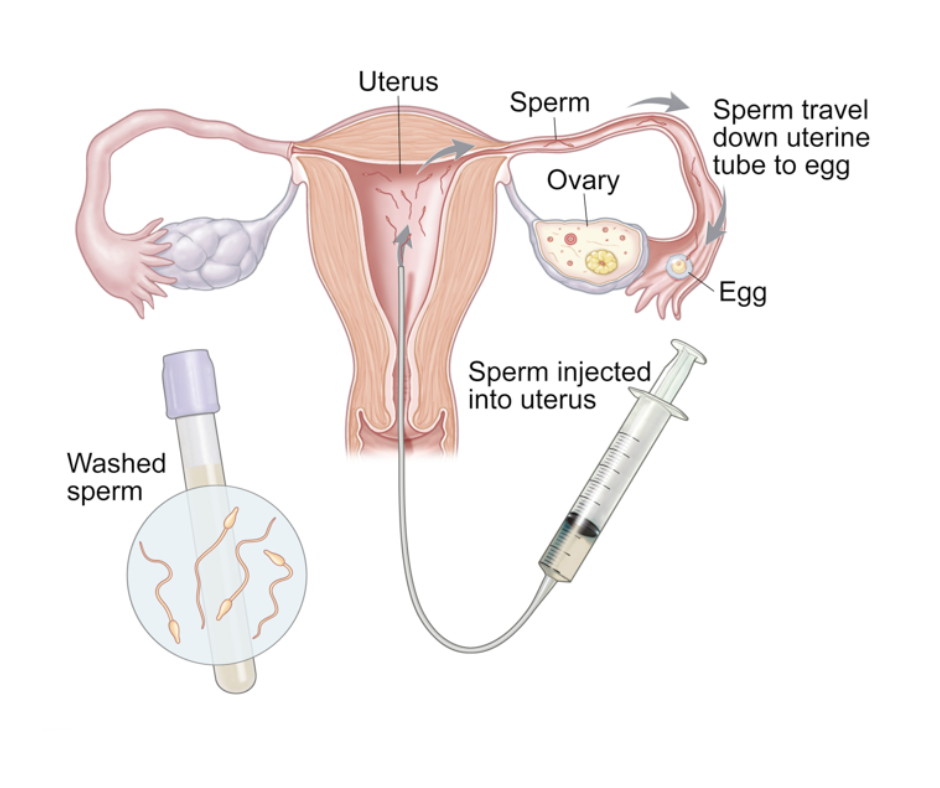- January 17, 2024
- By: Androcare Fertility Center
- No Comments
Intrauterine Insemination (IUI): What it is and How it Works
Intrauterine Insemination (IUI) is a type of fertility treatment that involves placing washed and concentrated sperm directly into the uterus to increase the chances of pregnancy. It is a relatively simple and non-invasive procedure that can be a good option for couples struggling with certain types of infertility.
In this article, we will explore what IUI is and how it works, as well as the benefits and risks of this treatment option.
What is Intrauterine Insemination (IUI)?
Intrauterine Insemination, also known as artificial insemination, is a fertility treatment that involves placing washed and concentrated sperm directly into the uterus. This procedure is timed to coincide with ovulation, which is when an egg is released from the ovaries and travels down the Fallopian tube.
IUI is a relatively simple procedure that can be performed in a healthcare provider’s office. Prior to the procedure, the male partner will provide a semen sample, which is then washed and concentrated to separate the healthy, motile sperm from the rest of the semen. The concentrated sperm is then placed into a sterile catheter, which is inserted through the cervix and into the uterus.
The timing of the procedure is crucial, as it must coincide with ovulation. In some cases, fertility medications may be prescribed to stimulate ovulation and increase the chances of success.
How Does Intrauterine Insemination (IUI) Work?
IUI works by increasing the number of healthy sperm that reach the egg, thus increasing the chances of fertilization and pregnancy. By placing the sperm directly into the uterus, IUI bypasses any potential obstacles that may prevent the sperm from reaching the egg, such as cervical mucus or scar tissue.
IUI is most effective for couples with certain types of infertility, such as unexplained infertility, mild male factor infertility, or cervical factor infertility. It is generally not recommended for couples with severe male factor infertility, such as low sperm count or motility, as the chances of success may be lower.
Benefits of Intrauterine Insemination (IUI)
One of the main benefits of IUI is that it is a relatively simple and non-invasive procedure that can be performed in a healthcare provider’s office. It is also less expensive than other types of fertility treatments, such as in vitro fertilization (IVF).
IUI may be a good option for couples with certain types of infertility, as it can help increase the chances of pregnancy without the need for more invasive procedures. It is also a good option for couples who are not comfortable with more invasive procedures or who are unable to afford more expensive treatments.
Risks and Complications of Intrauterine Insemination (IUI)
Like any medical procedure, IUI comes with certain risks and potential complications. Some of the risks associated with IUI include:
- Multiple pregnancy: IUI increases the chances of multiple pregnancies, such as twins or triplets. This can increase the risk of complications during pregnancy and delivery.
- Ovarian Hyperstimulation Syndrome (OHSS): In some cases, fertility medications used to stimulate ovulation can cause OHSS, a condition that causes the ovaries to become swollen and painful. In rare cases, OHSS can be severe and require hospitalization.
- Infection: The insertion of the catheter into the uterus can increase the risk of infection.
It is important for couples to discuss the risks and potential complications of IUI with their healthcare provider before undergoing treatment.
Success Rates of Intrauterine Insemination (IUI)
The success rates of IUI can vary depending on several factors, including the age of the woman, the cause of infertility, and the number of IUI cycles undergone. On average, the success rate of IUI is around 10-20% per cycle, meaning that for every 10-20 women who undergo IUI, one will become pregnant. However, success rates can be higher or lower depending on individual circumstances.
Factors that can affect the success rates of IUI include:
- Age: The success rates of IUI tend to decline with age, particularly for women over the age of 35.
- Cause of Infertility: IUI tends to be more effective for couples with certain types of infertility, such as unexplained infertility or mild male factor infertility.
- Number of IUI cycles: The more IUI cycles a woman undergoes, the higher her chances of success.
It is important to keep in mind that IUI is not always successful, and some couples may need to consider other fertility treatments if IUI does not result in pregnancy.
Preparing for Intrauterine Insemination (IUI)
Before undergoing IUI, couples will need to meet with their healthcare provider to discuss the procedure and undergo any necessary testing. This may include a physical exam, blood tests, and ultrasounds to check for ovulation and the health of the uterus and ovaries.
The male partner will also need to provide a semen sample, which will be washed and concentrated prior to the procedure.
If fertility medications are prescribed to stimulate ovulation, the woman will need to closely monitor her cycle and attend regular appointments with her healthcare provider to track ovulation and ensure the timing of the procedure is correct.
During Intrauterine Insemination (IUI)
On the day of the procedure, the male partner will provide a fresh semen sample, which will be washed and concentrated in a lab. The woman will then lie on an exam table, and a sterile catheter will be inserted through the cervix and into the uterus.
The concentrated sperm will then be inserted through the catheter and into the uterus, and the catheter will be removed. The woman will then rest for a short period of time before being able to go home.
After Intrauterine Insemination (IUI)
After the procedure, the woman may experience mild cramping or spotting, which should subside within a few hours. She may also be advised to avoid sexual intercourse or strenuous activity for a short period of time.
The woman will need to closely monitor her cycle and take a pregnancy test if her period is late. If the procedure is not successful, she may choose to undergo another cycle of IUI or consider other fertility treatments.
Intrauterine insemination (IUI) is a simple and non-invasive fertility treatment that can increase the chances of pregnancy for couples struggling with certain types of infertility. It involves placing washed and concentrated sperm directly into the uterus to bypass any potential obstacles that may prevent the sperm from reaching the egg.
While IUI is generally a safe and effective procedure, it does come with certain risks and potential complications. Couples considering IUI should discuss the risks and potential benefits of the procedure with their healthcare provider to determine if it is the right treatment option for them.
The success rates of IUI can vary depending on individual circumstances, and couples may need to undergo multiple cycles of IUI or consider other fertility treatments if IUI is not successful. With the right preparation and support, however, IUI can be a helpful tool for couples hoping to conceive.
If you are considering undergoing IUI, it is important to choose a healthcare provider with experience and expertise in the procedure. Androcare Fertility Nigeria is a leading fertility clinic in Nigeria that specializes in providing comprehensive and personalized fertility care to couples struggling with infertility. Our team of specialist doctors and consultants are highly trained in performing IUI and other fertility treatments, and we are committed to working with you to develop a treatment plan that meets your individual needs and goals. Contact us today to schedule a consultation and learn more about how we can help you achieve your dream of starting or growing your family.
Share via:

